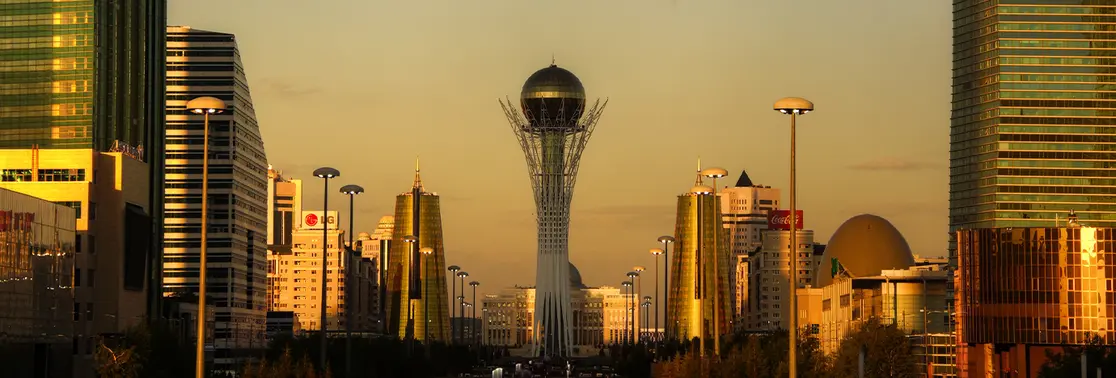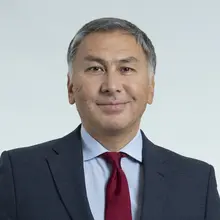Summary
- Unrest in Kazakhstan and its geopolitical implications: On 2 January, protests began in western Kazakhstan triggered by a sharp rise in fuel costs, but reflecting broader political discontent. The almost immediate response from the Collective Security Treaty Organization (CSTO, a Russian version of NATO) shows the close relationship between the Russian and Kazakhstan governments. It is the first time that its protection clause has been activated by the intergovernmental military alliance, disclosing potential geopolitical consequences for the region, where Russia and China both take a leading role in maintaining the stability of the region. The CSTO assistance, coupled with an absence of clear leadership representing the protesters, have restored order in the central Asian country.
- Economic and investment implications: Kazakhstan is a significant commodity exporter. The country is a minerals-rich state (it is the world’s largest uranium miner). Despite the high risk of supply-chain disruptions, so far mining operations have not been affected by these events and which. had a quite muted impact on Kazakh asset prices. However, if the protests continue, they could impact on the mines and production facilities, putting Kazakh assets under pressure.
Kazakhstan has shown stability and relative openness to foreign investment in central Asia following the dissolution of Soviet Union. The country presents a solid fiscal and external balance sheet and, in this respect, rating agencies consider its sovereign bonds as investment grade debt. Political unrest will be followed by increased government expenditure, affordable for a country which has significant fiscal buffers. On the equity side, investors are waiting to see what impact recent events will have on the privatisation pipeline in the country. In particular, a couple of IPOs were due to come to the market in the first quarter of this year and, given recent events, these are expected to be delayed. Regardless of any delays, the expectation remains that the country will continue its trajectory towards greater economic openness and the privatisation of assets.
Reason behind recent turmoil
Kazakhstan, a vast country of 18 million that shares borders with Russia and China, has been in the news during the past week because of widespread protests and violence. A rise in fuel prices seems to have triggered the demonstrations, although there may be other reasons for discontent such as the desire for political change. This has led to the dismissal of the cabinet and President Tokayev has removed the former President, Nursultan Nazarbayev, from his position as the Head of the Security Council. Nazarbayev was president of the country for almost thirty years before his resignation in 2019. Tokayev, a close ally of Nazarbayev and former Prime Minister and Foreign Minister, was elected president in 2019.
The protests, which resulted in human and physical damage, seem to have calmed down following the announcement of measures that include scrapping the contentious fuel price rise, price controls on some essential food items and a reshuffling of the government. Thousands have been arrested and the internet was cut which has since been resolved. Tokayev also called for the help of the Collective Security Treaty Organization (CSTO)1, which is currently present in the country as a peacekeeping force in order to guard strategic facilities and back up the country’s armed forces if necessary. The president proposed a new government to Parliament on 11 January, and additional new economic measures could also be announced. At the time of writing, Tokayev has confirmed a date for the troops to withdraw after talks with the other heads of CSTO states. Commencing the evacuation of these military forces shows the situation has been restored and stabilised.
It is likely that the current political unrest will subside, as it did with previous protests in Kazakhstan (also triggered by dissatisfaction about the unequal wealth distribution), and will be followed by increased government expenditure.
Separating the economic from the political, following news that beyond Almaty (the country’s largest city) the situation has calmed and appears to be coming under control within Almaty, the expectation is that the economic situation will normalise with internet services being restored, banks reopening and business operations normalising.
_________________________
1 Comprised of Russia, Belarus, Armenia, Tajikistan and Kazakhstan.
Impact on economic outlook and investment consequences
Kazakhstan is a country rich in mineral resources including uranium (40% of global output), coal (9th globally), oil (17th globally) and natural gas (24th). While there has been some volatility in the markets with uranium prices spiking and with some Kazakh assets underperforming, we do not expect the impact to be long-lasting.
In terms of the fiscal measures to appease the public, they may lead to the budget deficit increase, but this should be affordable for the sovereign which has significant fiscal buffers. However, if the social and political instability were to last longer, there could be more serious implications for GDP growth, foreign direct investment and capital flight by the locals.
Political unrest will likely subside and be followed by increased government expenditure, which is affordable for the country as it has significant fiscal buffers.
The impact on Kazakh asset prices has been rather muted, reflecting investors’ views on strong fundamentals underpinned by a favourable outlook for commodities and relatively light positioning.
Kazakh fixed income assets moved in an orderly way flowing the political developments in the country. External sovereign debt widened by 10-20 basis points (5yr CDS), whereas the reaction of quasi-sovereign bonds was slightly larger, with these assets widening by around 30 basis points for the 10yr sector. The main reasons for this fairly muted market reaction was the solid fundamentals of Kazakhstan and the fact that the country’s strategic oil and gas assets were not affected by the unrest.
On the local currency side, the market was closed during the unrest and FX trading only resumed on 12 January. However, within offshore FX trading, the Kazakh Tenge weakened by about 1.5-2%. We expect the Central Bank of Kazakhstan to support the FX market and smooth any volatility in the short term.
However, if political risks linger Kazakh assets may come under pressure. We will continue monitor these political risks and the impact of any new measures on the economy to assess the potential investment implications.
Equity investors are also waiting to see the impact of recent events on the privatisation pipeline in the country. In particular, a couple of IPOs were expected to come to the market in the first quarter of this year, and given recent events it is anticipated that these will be delayed.
Regardless of any delays, the expectation remains that the country will continue on its trajectory towards greater economic openness and the privatisation of assets.
The overall impact on Kazakh asset prices has been rather muted, reflecting investors’ views that fundamentals are strong and the fact that the country’s strategic oil and gas assets were not affected by the unrest.
Definitions
- Balance of payments (BoP): A statement/record that summarises all transactions that a country's individuals, companies, and government bodies complete with individuals, companies, and government bodies outside the country.
- Credit Default Swap (CDS): A credit default swap (CDS) is a financial swap agreement that the seller of the CDS will compensate the buyer in the event of a loan default or other credit event.
- FDI: Foreign direct investments.
- FX: FX markets refer to the foreign exchange markets where participants are able to buy and sell currencies.
- Investment grade: Refers to securities issued by an issuer of negotiable debt securities (Treasury bonds...) or bonds for which the Standard & Poor’s rating is greater than or equal to BBB-. 'Investment grade' bonds are considered by the various rating agencies as having a low risk of non-repayment.
- Quasi sovereign: companies wholly or partially owned by the government



